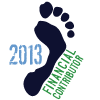Hey BG, having gotten caught up in the marathon bug of this post myself, if you don't mind, I'd be interested in hearing what your approach will be over the next eight weeks.
Absolutely! This will be my third marathon. After running a few half's I decided to run a full in which my first one was two years ago. After that experience I decided to run a marathon a year at a different location. Well this year I ran a 50K in May and now decided to run a marathon in October, I'm a bit ahead of schedule this year

That is just a little back ground of where I stand on distances.
For both marathons I ran 4 days a week, which is usually the running schedule I like to keep, training or not training for something. (When I am not training for something, I will rarely run long on the weekends). Even for the 50k I ran 4 days a week, if I have time I would sneak another day in there. Between family life, kids, and work, 4 days works great for me. I am not a big weekly mileage person, and I work well on rest. I usually max out between 35 and 40 during peak training, very low by standards. I don't do any speed workouts, track workouts, but I have a great course that consist of some great hills, which I run allot.
So now that I dropped the garmin, my approach to this marathon will be training by time. For my weekly runs (3 days) I will keep my runs anywhere between 50-60 minutes, then I will do my long run on the weekend. For my long run this weekend I am looking to run 2 hour and 20 minutes.
Here is my schedule that I came up with for my long runs on the weekend. I did say 8 weeks but I realized I was wrong, it's a bit more but I will be doing a two week taper, which I don't count for training. So it's 9 weeks of training. This whole non-training with a garmin is completely new for me so it will be interesting.
2:20
2:20
1:50
2:30
3:00
1:30
3:00
1:30
3:00
1:15
Marathon!
Sorry to ramble. Before my first marathon I did a lot of research on schedules and what not just to get an idea, and I did buy a great book called "Advanced Marathoning" by Pete Pfitzinger. Don't get fooled by the word "advanced", it's a great book that covers everything about a marathon and training.
My first marathon I ran and trained in KSO Vibrams, and my last 20 miler I came down with a bad case of ITBS. I barely ran the whole month before the marathon, but I ran it. At mile 15 the ITBS hit me hard! It was a combination of walking and running to the finish. My time was 4:16:00. I had a great time though. I realized I was running my long runs to fast, run them slow.
My marathon last year was barefoot, I came in at 3:55:12
This year running without a garmin, life is busier, and mileage will be lower.... Who knows and who cares. I just like the atmosphere of the marathon and will do my best, of course this will be barefoot as well.




































